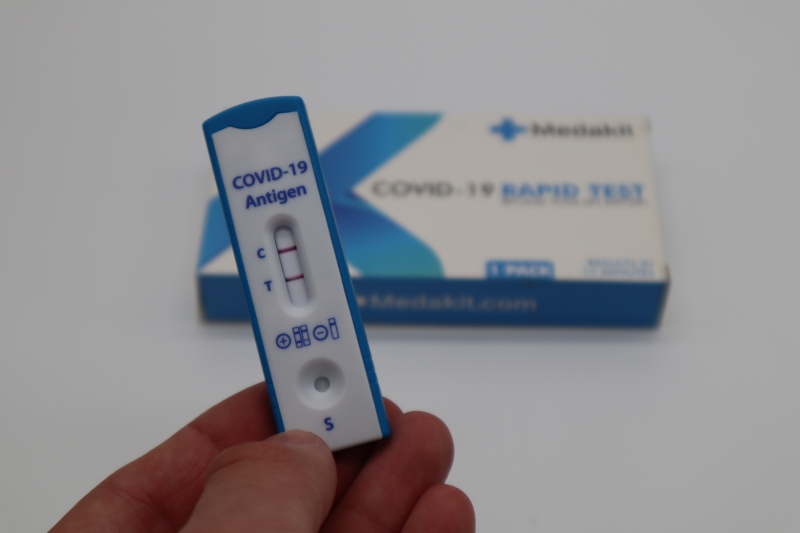Workplace testing programme extended
9 February 2021

The National Workforce Testing programme was originally set up to run alongside NHS Test and Trace, with the aim of minimising the risk of Covid-19 outbreaks in workplaces providing vital public services. It was originally available for businesses with over 250 staff, but that has now been expanded to allow those with more than 50 employees to register.
The programme allows employers, in both the public and private sectors, access to lateral flow tests (often call 'rapid tests') free of charge where they provide essential services and have employees who cannot work from home.
The changes have been introduced following reports of very low rates of workplace testing. A recent survey by the CBI suggested that 87% of businesses were not carrying out testing, with 31% of them citing legal and regulatory complexities of testing staff as a reason that they had decided against introducing it. Others suggested that lack of clear guidance or expertise and the cost of testing meant they were not offering workplace tests.
The key legal concerns for employers often relate to confusion about entitlement to Statutory Sick Pay (SSP), action against employees who refuse to be tested and data protection. We have provided some guidance on each of issues below.
Entitlement to SSP
Previously, there was uncertainty around the reliability of rapid tests and the impact on an employee's entitlement to SSP if they test positive and are refused access to the workplace. Public Health England has now clarified that employees who have had a positive rapid test are required to self-isolate and arrange a test via NHS Test and Trace. They will therefore be entitled to SSP for the period between the rapid test and NHS test and for any additional period of self-isolation.
If employers have a contractual sick pay scheme, they should consider how self-isolation following a positive rapid test should be treated, although it's likely that removing contractual sick pay entitlement in these circumstances may discourage staff from agreeing to be tested.
What if an employee refuses to be tested?
In practice, many employees are likely to appreciate the additional protection offered by regular testing and agree to voluntarily take a test. However, for employees who refuse, it is unlikely that an employer could force them to be tested (either practically or legally) unless, because of the nature of the employer's business, it was considered to be too risky to allow the employee to attend work without a negative test. In the vast majority of workplaces, which have continued operating in a Covid-secure manner throughout the pandemic, this will not be justified on the basis that other measures can be put in place to reduce the risk to an acceptable level. Care homes are one of the exceptions to this, as has been reported in the press recently.
Employers should be wary of preventing employees from attending the workplace if they refuse to be tested, as this could result in breach of contract (where the employee does not receive their full pay) and constructive dismissal claims.
Data protection issues
Employers who are considering introducing workplace testing should carefully consider the data protection implications of doing so. Carrying out Covid-19 tests for staff is far more intrusive than other measures such as temperature testing or symptom questionnaires and the data collected will be 'special category' data, which requires additional safeguards.
Before introducing workplace testing, employers should:
- Consider the scope of any testing programme. This should be limited to areas in which they really need the information to ensure workplace safety. For example, it may not be justified to include an office worker, who works alone, in a testing programme, but could be justified for employees on a factory floor who are regularly in contact with one another.
- Carry out a Data Protection Impact Assessment (DPIA) to record the assessment of risks and benefits of processing test information and the measures that have been taken to mitigate the risks.
- Review data protection documentation to ensure that it adequately covers the processing of test results.
It is worth noting that workplace testing is not considered an alternative to maintaining a Covid-secure workplace but is simply another measure to reduce the risk to staff and visitors. It is also not intended to replace the tests available to symptomatic individuals via NHS Test and Trace and, where employers are using rapid workplace testing, they must remind staff of this.
With the prospects of mass-testing and vaccinations being rolled out in the next few months, there are likely to be regular changes to workplace guidance. We will continue to produce regular e-alerts on key developments and are available to assist with Covid-related employee issues.
Useful links:
Gov.uk announcement on extension to National Workforce Testing
Register interest in National Workforce Testing
Department of Health & Social Care guidance on Covid-19 testing for employers
For further information and advice please contact the Employment team or your usual Wilsons contact.



